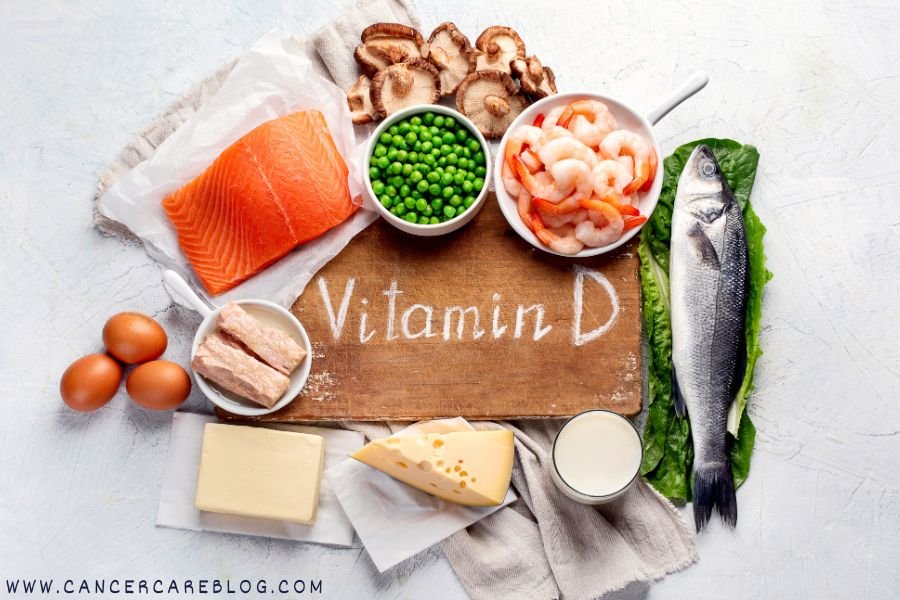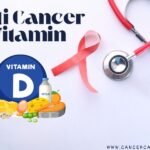A few months ago, someone very close to me was diagnosed with early-stage breast cancer. It was terrifying — not just emotionally but mentally. While they began their treatment, I found myself diving deep into medical articles, survivor blogs, and nutritional science.
That’s when I kept stumbling upon one phrase:
At first, I thought it was just another nutrition trend, but the more I researched, the more I realized there was solid science behind it. This article is for anyone trying to understand how Vitamin D may help prevent or fight cancer — just as I was.
The Shocking Numbers Behind Vitamin D Deficiency
Did you know that over 1 billion people worldwide have Vitamin D deficiency?
Even more alarming, multiple studies show a clear connection between low Vitamin D levels and an increased risk of cancers, especially:
-
Breast cancer
-
Colorectal cancer
-
Pancreatic cancer
-
Prostate cancer
A 2020 study published by the National Cancer Institute revealed that individuals with sufficient Vitamin D levels had a 17% lower risk of dying from cancer.
That’s not a small number.
What Makes Vitamin D So Powerful?
Here’s how it helps our body fight cancer:
| Function | Impact |
|---|---|
| Controls cell growth | Prevents abnormal multiplication of cells |
| Boosts immune response | Helps detect and destroy potentially cancerous cells early |
| Reduces inflammation | Chronic inflammation can trigger cancer |
| Aids in DNA repair | Protects against genetic mutations |
In short, Vitamin D acts like a natural defense shield, stopping cancer before it takes hold.
Where Do We Get Vitamin D From?
1. Sunlight
-
Just 10–20 minutes of sun exposure on your skin can trigger Vitamin D production.
-
But indoor lifestyles, sunscreen, and pollution can block this.
2. Food Sources
-
Fatty fish (salmon, tuna, sardines)
-
Fortified milk and cereals
-
Egg yolks
-
Mushrooms exposed to sunlight
3. Supplements
-
If natural sources aren’t enough, doctors may recommend Vitamin D3 supplements, especially in colder countries.
How Much Vitamin D Do You Really Need?
Experts suggest:
-
600–800 IU/day for adults
-
Up to 1000 IU/day for people above 70
However, the best way to know is to get your Vitamin D levels tested. The ideal blood level should be 30–50 ng/mL. Below 20 is considered deficient.
Other Vitamins That May Help Against Cancer
While Vitamin D gets the spotlight, other vitamins also support cancer defense:
| Vitamin | Role |
|---|---|
| Vitamin C | A strong antioxidant that protects cells from damage |
| Vitamin A | Supports immune strength and tissue health |
| Vitamin E | Shields cells from oxidative stress |
| Folate (B9) | Helps in DNA synthesis and repair |
Still, no vitamin is a miracle cure. They work best as part of a healthy lifestyle.
The Truth About Supplements and Myths
| Myth | Reality |
|---|---|
| High doses of Vitamin D can cure cancer | False. It helps prevent, but doesn’t cure cancer. |
| More is better | Overdosing can lead to kidney issues and toxicity. |
| All supplements are safe | Not true. Always consult a doctor first. |
Key Fact: A Study That Changed My Perspective
A study in the Journal of Clinical Oncology showed that women with breast cancer who had adequate Vitamin D levels at diagnosis had higher survival rates than those who didn’t.
That fact alone made me — and my loved ones — take our Vitamin D status seriously.
My Takeaway: Don’t Wait
You don’t need to wait for a cancer scare to take action.
Vitamin D is affordable, accessible, and incredibly impactful — yet often ignored. Whether it’s a simple supplement or 15 minutes of daily sun, taking care of your Vitamin D levels could be one of the easiest ways to protect your long-term health.
So if you’re reading this because you or someone you love is dealing with a cancer scare, take it from me — ask your doctor about checking your Vitamin D.
It might just be the easiest cancer defense you didn’t know you needed.



